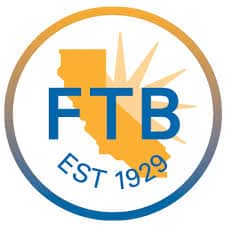
The California Franchise Tax Board (FTB) collects personal income taxes and corporate taxes due to the state. When you pay your state taxes, you pay them through the FTB as a franchise tax board payment.
One of the most common questions we get from our clients in cities like Newport Beach, Irvine and Santa Ana has to do with payments to the FTB. Our clients filed their tax returns and paid their taxes yet they find they still owe money. In this post we’ll explore the possible reasons why to learn more about your franchise tax board payment.
Why Do I Still Owe Money?
There are a number of reasons you may receive a bill from the Franchise Tax Board.
You filed your tax returns late.
This is by far the most common reason you may still owe money. People don’t realize that late filing, even by one day, will incur a late filing penalty. Late filing will cost you a 5% penalty plus ½ of 1% for each month the unpaid taxes aren’t paid. The minimum penalty is $100. The obvious answer is to make sure you file your taxes and pay the amount owed before the due date. This will positively affect your franchise tax board payment.
You made a mistake.
Another common issue that we see at our Orange County tax law offices involves mistakes tax filers make when they prepare their returns. They either claim an improper deduction or make a mistake in the math and consequently underpay the taxes they owe. The Franchise Tax Board will review your return and make corrections and then bill you the difference. Once again, you may be subject to a late filing penalty.
You underpaid your taxes. Sometimes unforeseen circumstances happen and taxpayers simply can’t pay the entire amount due. Our Orange County tax attorneys see this scenario every day. If you still owe taxes, you’ll be subject to late filing penalties which will grow every month. Your best bet in this scenario is to work out a payment plan to pay off the taxes owed, interest and penalties.
Personal Assessment for Business Tax If you own a business you may be held personally responsible for your business’ tax debt. For instance, sometimes business officers receive excessive funds or other assets from a business, preventing it from paying its tax debts. When this occurs, the officers may become personally liable for the tax debt.
But Wait-I Don’t Owe Any Taxes. Why Am I Still Being Billed?
Besides collecting income taxes, the Franchise Tax Board also collects fees and fines for other agencies. Your taxes may be paid but you may have outstanding fees elsewhere.
Back Child Support. By far the most common collection by the Franchise Tax Board involves back child support. If you don’t make court-ordered child support payments the Franchise Tax Board will collect what’s owed and distribute it back to the person it’s owed to. It’s important to note that the FTB will use the same enforcement actions with child support that it does with tax debt and that means it could include everything from liens, wage garnishment and the seizure of personal and real property.
Auto Registration Fees. Where you late paying your auto registration or have you not registered your vehicle? If so, a penalty is added on and those fees could be collected by the Franchise Tax Board. Generally speaking the FTB will begin collection actions 90 days after the delinquency and it could include bank levies and wage garnishments.
Court Costs. If you owe money for unpaid tickets or fines, the Franchise Tax Board will be charged with collecting those fees plus any late fees and delinquencies. Once again, these may include involuntary actions such as wage garnishment or bank levies.
What Do I Do?
If you’ve received a collection notice from the Franchise Tax Board or a levy notice through your employer or bank, the worst thing you can do is to ignore it. It will not go away. It’s important to deal with the matter before it gets worse.
Our Orange County tax lawyers can help you sort through the collections process and determine what the best course of action should be.
Not every case is the same but if it turns out that you do owe money we can help stop collection actions. Other options include setting up an installment agreement and perhaps an Offer in Compromise to settle the amount due for less than what’s owed. Every case is different and there are no guaranteed outcomes but our experienced tax attorneys can help guide you through the process.
If the Franchise Tax Board says you owe money but you’re not sure why, contact the RJS LAW tax team or call (619) 595-1655 today for a no-obligation ½ hour consultation to discuss your options.
***
This blog post is not intended as legal advice and should be considered general information only. If you have tax or business related questions or if you have received any types of notices from either the IRS, the California Franchise Tax Board or the California Bureau of Equalization, contact the tax professionals at RJS LAW today.
Our team constantly stays updated on the latest tax issues and we can help you sort through your options. We have convenient offices in Los Angeles, Orange County and San Diego and we can help. For a free consultation call us at (619) 595-1655.

Leave a Reply